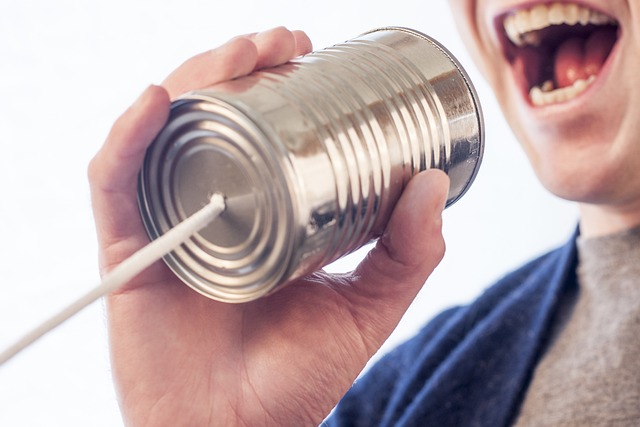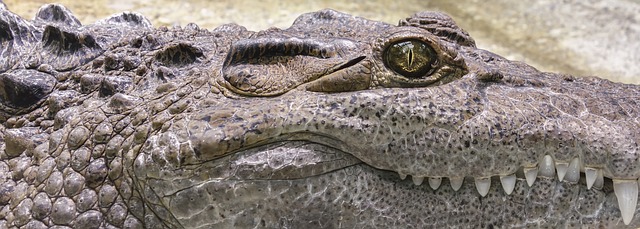Unveiling the Caffeine-Dry Mouth Connection: Could Your Daily Pick-Me-Up be the Culprit?
Welcome to the intriguing world of caffeine and its impact on our bodies! For those of us who rely on that daily cup of coffee or energy-boosting soda to kickstart our day, have you ever noticed that dry, desert-like feeling in your mouth shortly after taking a sip? You’re not alone! While coffee and other caffeinated beverages are known to provide us with that much-needed jolt of energy, many of us are unaware of the potential side effect they can have on our oral health. In this article, we delve into the fascinating caffeine-dry mouth connection to uncover whether our beloved pick-me-ups could be the culprit behind this unpleasant sensation. So grab a warm beverage (caffeine-free, if you like), and let’s explore this topic together!
1. The Caffeine-Dry Mouth Connection: Understanding the Surprising Link
Caffeine has become a staple in many people’s daily routines, but did you know that it could be contributing to your dry mouth? Yes, that’s right! The link between caffeine and dry mouth may come as a surprise, but understanding this connection is crucial for maintaining your oral health.
When you consume caffeine, it acts as a diuretic, which means it increases urine production and leads to dehydration. As a result, your body loses fluids, including the precious saliva that keeps your mouth moist. This loss of saliva can leave your mouth feeling parched and uncomfortable. Additionally, caffeine can stimulate your central nervous system, causing a decrease in saliva production. This double whammy of dehydration and reduced saliva can exacerbate dry mouth symptoms, making it even more important to understand and manage this unexpected link.
- To combat caffeine-induced dry mouth, try incorporating these helpful tips into your routine:
- Stay hydrated by drinking plenty of water throughout the day. This will help replenish the fluids lost due to caffeine’s diuretic effect.
- Limit your caffeine intake and choose alternative beverages like herbal teas or water-infused with refreshing fruits.
- Chew sugar-free gum or suck on sugar-free candies to stimulate saliva flow and keep your mouth moist.
- Consider using saliva substitutes or moisturizing oral rinses recommended by your dentist to alleviate dry mouth symptoms.
By understanding the caffeine-dry mouth connection and taking proactive measures, you can keep your mouth happy and healthy while still enjoying your morning cup of joe. Remember, prioritizing your oral health goes hand-in-hand with your overall well-being, so make hydration and managing caffeine intake a part of your daily routine.

2. Are You Experiencing Dry Mouth? It Could Be Your Daily Caffeine Fix!
If you find yourself constantly reaching for a cup of coffee or tea throughout the day, you may be inadvertently causing dry mouth. Caffeine, although a beloved pick-me-up, is actually a diuretic, which means it can lead to dehydration. And dehydration is a major culprit behind dry mouth. It’s important to keep in mind that dry mouth can cause discomfort, difficulty in speaking and swallowing, and even bad breath. But don’t worry, there are steps you can take to combat this issue and still enjoy your daily caffeine fix!
Stay hydrated: One of the best ways to counteract the drying effects of caffeine is to drink plenty of water. Make sure you sip on water in between your cups of coffee or tea to stay adequately hydrated. Remember, maintaining a good hydration level is key to preventing dry mouth.
Use a straw: When indulging in your favorite caffeinated beverage, try using a straw. By sipping through a straw, you can minimize the contact between the liquid and your teeth and gums, reducing the risk of developing dry mouth.
Choose herbal alternatives: If you’re looking to switch things up, consider opting for herbal teas that are free of caffeine. These delicious alternatives can provide a soothing effect without contributing to dry mouth.
Mouth moisturizers: To relieve the discomfort of dry mouth caused by caffeine, you can try using over-the-counter mouth moisturizers, such as sprays or rinses specially formulated to combat dry mouth. These products can help to restore moisture and provide relief.

3. Exploring the Relationship Between Caffeine and Dry Mouth: What You Need to Know
Are you curious about the link between caffeine and dry mouth? We’ve got you covered! Here’s what you need to know:
Caffeine’s Dehydrating Effect
One of the main reasons caffeine can contribute to dry mouth is its dehydrating effect on the body. When you consume caffeine, such as from coffee, tea, or energy drinks, it acts as a diuretic, increasing urine production and potentially leading to dehydration. Dehydration can reduce salivary flow and cause dry mouth symptoms.
The Stimulation of Saliva Production
While caffeine can dehydrate your body, it can also have a paradoxical effect on your salivary glands. Research suggests that caffeine can stimulate saliva production, which can temporarily alleviate dry mouth symptoms. However, it’s important to note that excessive caffeine intake should be avoided as it can lead to increased dehydration and worsen dry mouth.
If you’re experiencing dry mouth, it’s essential to stay hydrated by drinking plenty of water throughout the day. You may also consider reducing your caffeine intake to prevent further dehydration. Additionally, keep in mind that dry mouth can be caused by various factors, including medications, medical conditions, and mouth breathing habits. If your dry mouth persists or becomes severe, it’s always a good idea to consult your healthcare provider for a proper diagnosis and guidance.

4. How Your Morning Cup of Joe May Contribute to Dry Mouth Symptoms
If you love starting your day with a warm cup of coffee, you may be surprised to learn that it could be contributing to your dry mouth symptoms. While coffee is a popular beverage enjoyed by many, its effects on our oral health may not be so well-known. Let’s explore how your beloved morning “cup of Joe” could be causing dry mouth and what you can do to alleviate these symptoms.
Potential Causes of Dry Mouth from Coffee:
- Caffeine: Coffee contains caffeine, a natural diuretic that increases urine production. As a result, you may experience increased urine output, which can lead to dehydration. Dehydration is a common cause of dry mouth.
- Acidity: Coffee is acidic, and acidic foods and beverages can affect the pH balance in your mouth. When the pH levels drop, it creates an environment that promotes the growth of harmful bacteria and leads to dry mouth symptoms.
- Tannins: Coffee naturally contains tannins, which are compounds that can leave a dry and bitter sensation in your mouth. These compounds also have a dehydrating effect, intensifying the feeling of dryness in your mouth.
While a cup of coffee can be a delightful way to kick-start your day, it’s essential to be aware of its potential impact on your oral health. If you experience dry mouth symptoms and are an avid coffee drinker, try reducing your consumption or considering alternatives like herbal tea or hydrating beverages. Additionally, staying properly hydrated throughout the day and maintaining good oral hygiene practices can help mitigate the effects of dry mouth.

5. Is There a Link? Unmasking the Connection Between Caffeine and Dry Mouth
Many people enjoy starting their day with a cup of coffee or tea, but have you ever noticed that it can leave your mouth feeling dry? It turns out there may be a link between caffeine consumption and dry mouth. Let’s take a closer look at this connection and explore some ways you can alleviate this uncomfortable symptom.
What causes dry mouth?
Dry mouth, also known as xerostomia, occurs when there is insufficient saliva production in the mouth. Saliva plays a vital role in maintaining oral health by lubricating the mouth, aiding in digestion, and protecting against tooth decay. When saliva levels decrease, it can lead to dryness, discomfort, and difficulties in speaking and swallowing.
The caffeine factor
While caffeine itself doesn’t directly cause dry mouth, it can contribute to its development. Caffeine is a diuretic, which means it increases urine production and potentially leads to dehydration. When the body becomes dehydrated, it affects the salivary glands, reducing saliva production and resulting in dry mouth. Additionally, caffeinated beverages like coffee, tea, and some energy drinks can be acidic, further exacerbating dry mouth symptoms.
6. Unlocking the Mystery: How Caffeine Can Affect Saliva and Lead to Dry Mouth
Caffeine is a popular compound found in coffee, tea, chocolate, and energy drinks. While it provides a much-needed energy boost for many people, it can also have an unexpected effect on saliva production, leading to a dry mouth. Understanding how caffeine affects saliva can help you make informed choices about your caffeine intake and take steps to counteract its drying effects.
Here are some key points to consider:
- Dehydration: Caffeine is a natural diuretic, meaning it increases urine production and can cause dehydration. When your body becomes dehydrated, it produces less saliva, leading to a dry mouth. It’s important to drink plenty of water throughout the day to stay hydrated, especially if you consume caffeinated beverages.
- Stimulation of Salivary Glands: While caffeine can reduce overall saliva production, it does still stimulate the salivary glands. This can lead to a short-term increase in saliva flow shortly after consuming a caffeinated beverage. However, this can be followed by a decrease in saliva production, exacerbating dry mouth symptoms.
- Replacement Drinks: If you find that caffeine exacerbates your dry mouth symptoms, consider replacing caffeinated drinks with alternatives such as herbal tea or water. These beverages can help maintain proper hydration levels and increase saliva production, reducing dry mouth discomfort.
7. Say Goodbye to Dehydration: Unveiling the Hidden Effects of Caffeine on the Mouth
Caffeine is a beloved beverage component that keeps us energized and awake throughout the day. But did you know that it can have hidden adverse effects on our oral health? Apart from the temporary burst of energy, caffeine can contribute to dehydration, which can take a toll on our mouths. Here are a few things to keep in mind when it comes to the effects of caffeine on our oral health:
1. Dry Mouth: Caffeine is a diuretic, meaning it can increase urine production and lead to dehydration. This dehydration can result in reduced saliva production, causing dry mouth. Saliva plays a crucial role in maintaining oral health by neutralizing acid, washing away food particles, and preventing tooth decay. Stay hydrated by drinking water alongside your favorite caffeinated beverages to combat dry mouth.
2. Bad Breath: Dry mouth caused by caffeine can also contribute to bad breath, also known as halitosis. Saliva helps cleanse the mouth and remove odor-causing bacteria, so when saliva production decreases, the bacteria multiply and cause unpleasant breath. To combat bad breath, try sipping water alongside your coffee or chewing sugar-free gum to stimulate saliva production.
8. Coffee Lover’s Dilemma: Could Your Beloved Brew be Behind Your Persistent Dry Mouth?
Could Your Beloved Brew be Behind Your Persistent Dry Mouth?
Do you enjoy starting your day with a delicious cup of coffee? If so, you may have noticed that your mouth feels dry afterwards. While coffee is undoubtedly a beloved beverage for many, it can actually contribute to persistent dry mouth. Don’t worry, coffee lovers, we’re here to explain this dilemma and provide you with some helpful tips to mitigate the effects.
1. Understanding the link: Coffee is a diuretic, meaning it increases urine production and can cause dehydration. This dehydration affects not only your overall fluid levels but also your mouth’s saliva production, leading to that uncomfortable dry sensation. Additionally, coffee contains compounds that can alter the pH balance in your mouth, encouraging the growth of bacteria that contribute to dry mouth.
2. Combatting dry mouth: While it might be challenging to give up your favorite beverage completely, there are steps you can take to reduce its drying effects:
- Hydrate properly: Drink plenty of water throughout the day to counteract the dehydrating effects of coffee.
- Limit consumption: Consider reducing your coffee intake or replacing some cups with herbal teas or water-based beverages.
- Practice good oral hygiene: Brush your teeth and use mouthwash regularly to keep your mouth clean and combat bacteria that exacerbates dryness.
- Chew sugarless gum: Stimulating saliva production can provide temporary relief from dry mouth symptoms.
So, yes, your beloved brew could indeed be behind your persistent dry mouth. By understanding the link and taking some simple steps to combat dryness, you can continue enjoying your coffee without the pesky side effect of parched lips. Remember, hydration is key, and moderation is the secret to maintaining a happy and moisturized mouth.
9. Tackling the Dry Mouth Dilemma: Understanding the Role of Caffeine in Saliva Production
When it comes to the issue of dry mouth, caffeine often gets a bad rap. However, understanding its role in saliva production can shed some light on this common dilemma. While it’s true that caffeine can act as a diuretic and affect our hydration levels, it’s important to remember that saliva production is a complex process influenced by various factors.
One key factor to consider is that caffeine can stimulate the nervous system, which in turn can impact saliva production. This stimulation triggers the release of certain neurotransmitters that can increase saliva flow. Additionally, caffeine can also enhance the production of digestive enzymes that are found in saliva, further aiding in the breakdown of food particles and promoting a healthier oral environment. However, it’s essential to strike a balance, as excessive caffeine consumption can lead to dehydration, which can ultimately exacerbate dry mouth symptoms.
10. Caffeine and Dry Mouth: Shedding Light on the Potential Culprit Behind Your Oral Discomfort
Do you frequently experience a dry mouth? If so, caffeine intake could be the possible cause behind your oral discomfort. While caffeine is a popular component of our daily routines, found in coffee, tea, soda, and even chocolate, its dehydrating effects on the body can lead to a lack of saliva production.
Saliva plays a crucial role in maintaining oral health, as it helps neutralize acids, washes away food particles, and prevents bacterial growth. When caffeine is consumed in excess, it can act as a diuretic, causing the body to lose fluids and ultimately leaving your mouth dry.
To address this issue, consider the following points:
- Limit your caffeine consumption
- Stay well-hydrated by drinking plenty of water
- Opt for caffeine-free alternatives like herbal tea or decaf coffee
By reducing your caffeine intake, you can potentially alleviate the discomfort of a dry mouth and promote overall oral health. Take care of your smile by making small adjustments to your daily routine!
Frequently Asked Questions
Q: What is the article about?
A: The article explores the possible relationship between consuming caffeine and experiencing dry mouth, shedding light on whether your daily coffee or energy drink might be the cause.
Q: Why is the caffeine-dry mouth connection significant?
A: Understanding this possible connection is important because it helps individuals identify potential causes of dry mouth and take appropriate action to maintain their oral health.
Q: What is dry mouth?
A: Dry mouth, also known as xerostomia, refers to a condition where there is insufficient saliva production in the mouth. It can lead to discomfort, difficulties in speaking and swallowing, bad breath, and increased risk of dental issues.
Q: How does caffeine relate to dry mouth?
A: Caffeine is a natural stimulant present in coffee, tea, soda, and energy drinks. It has diuretic properties that cause increased urine production, potentially leading to dehydration. Studies suggest that dehydration can contribute to reduced saliva production, leading to dry mouth.
Q: Does everyone experience dry mouth after consuming caffeine?
A: No, not everyone experiences dry mouth as a result of caffeine consumption. Individual reactions may vary due to factors such as overall hydration levels, sensitivity to caffeine, and personal oral health.
Q: Can caffeine consumption alone cause dry mouth?
A: While caffeine can contribute to dehydration, it is unlikely to directly cause dry mouth. Dry mouth is usually a multifactorial condition, influenced by various factors including medications, medical conditions, stress, and lifestyle habits. Caffeine might be a contributing factor for some individuals but not the sole cause.
Q: How can I manage or prevent dry mouth if I consume caffeine?
A: To combat dry mouth while consuming caffeine, it is essential to focus on hydration. Ensure you drink an adequate amount of water throughout the day to counteract the potential dehydrating effects of caffeine. Additionally, maintaining good oral hygiene, using sugar-free gum or lozenges, and visiting your dentist regularly can assist in managing dry mouth symptoms.
Q: Can I still enjoy my daily caffeine fix without worrying about dry mouth?
A: Absolutely! By staying hydrated and practicing good oral hygiene, you can still enjoy your regular caffeine intake while minimizing the potential for dry mouth. Remember, everyone’s body reacts differently, so paying attention to your individual experiences can help determine the best approach for you.
Q: Should I consult a healthcare professional if I experience persistent dry mouth after consuming caffeine?
A: Yes, if you frequently experience dry mouth regardless of caffeine consumption, it is advisable to consult a healthcare professional or dentist. They can assess your specific situation, diagnose any underlying causes, and provide appropriate guidance or treatment options. Remember, it’s always better to seek professional advice for persistent symptoms.
Conclusion
In conclusion, understanding the caffeine-dry mouth connection can shed light on a common yet overlooked discomfort that many of us experience throughout the day. While caffeine is beloved for its energizing effects, it’s important to be mindful of its potential side effects, including dry mouth.
As we have learned, caffeine’s diuretic properties can lead to increased urination, which in turn can dehydrate the body and contribute to the occurrence of dry mouth. Additionally, caffeine’s ability to stimulate the central nervous system can result in decreased saliva production, exacerbating the dry mouth sensation.
Fortunately, now that we are aware of the relationship between caffeine and dry mouth, there are steps we can take to alleviate the discomfort. Introducing more water into our daily routine alongside caffeine consumption can help counteract dehydration and maintain saliva production. Chewing sugarless gum or utilizing over-the-counter saliva substitutes can also provide relief for those seeking immediate comfort.
Remember, the key is balance. Moderation is the key to enjoying your daily pick-me-up without the unpleasant side effects. Knowing how to preemptively address dry mouth can empower us to make informed choices about our caffeine habits while prioritizing our overall well-being.
So go ahead, pour yourself a cup of your favorite caffeinated beverage and savor it knowing that you have the knowledge to protect yourself against the caffeine-dry mouth connection. Stay hydrated, stay informed, and enjoy your daily caffeine boost with a smile!






